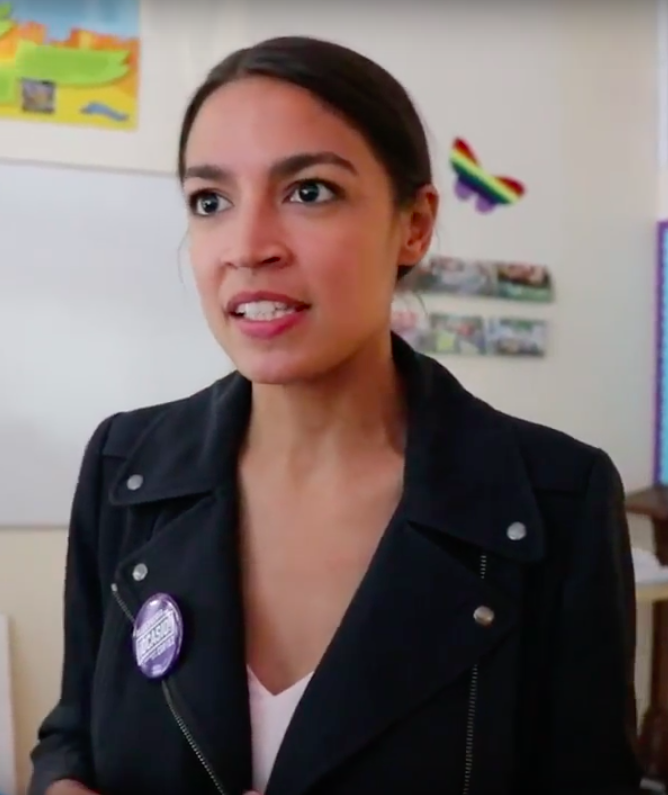
Decarbonization, a federal jobs guarantee, large-scale public investment, and election reform: What do these have in common? They’re all part of the Green New Deal.
The GND plays off of former President Franklin D. Roosevelt’s New Deal, which combined economic reforms like the Social Security Act with public works projects like the Civil Works Administration. It seeks to revive this type of government while going even farther to address fundamental issues like climate change and poverty.
One problem with discussing the GND is its ambiguity; specific policy proposals change if you ask Rep. Alexandria Ocasio-Cortez, D-N.Y. or Jill Stein, the Green Party’s 2016 presidential candidate. Either way, the GND’s principles coalesce around rapid action on climate change, large public spending to address joblessness, and reforms to the U.S.’s democracy itself, which address the major societal and economic problems facing the country today.
First, the GND addresses several facts about the world we live in: If our current carbon habits continue through 2100, large parts of major cities like New York, Mumbai, and Miami will be completely submerged, according to EarthTime, which collects data from sources like NASA and Harvard University. Many parts of the Middle East and North Africa may become uninhabitable in just a few decades, according to a study in the Climatic Change journal. The Food and Agriculture Organization of the United Nations reported that accessible fresh water in the Near East and North Africa has already fallen by two-thirds in the last 40 years, which has already contributed to the ongoing Syrian refugee crisis.
The Green Party’s version of the GND plans to incentivize “green” business models with low-interest loans, to redirect research funding from fossil fuels toward wind, solar, and geothermal projects, and to dedicate 16 million jobs to transforming the country’s energy infrastructure. Ocasio-Cortez wants to transition to 100 percent clean, renewable energy by 2030. This is ambitious, but many policy experts believe it’s possible to achieve 100 percent carbon-free (not renewable) energy by 2035.
The GND also calls for serious election reforms. The first change amends the U.S. Constitution to clarify that corporations cannot give unlimited money to Political Action Committees. The proposal would also change how elections work by reducing barriers to vote, which contribute to the U.S.’s horribly low voter turnout rate. Specifically, the GND would turn Election Day into a national holiday, offer same-day voter registration, replace winner-take-all races with ranked choice voting or run-off races, and restore voting rights to ex-convicts who had them revoked.
Two other important aspects of the GND include massive public investment, similar to FDR’s programs in the 1930s, and a federal jobs guarantee. These proposals work in tandem, providing well-paying jobs (even manual labor jobs would pay around $15 per hour) to those who want them.
The Green Party plans to convert all existing unemployment offices into locally-controlled employment offices, estimating 25 million created jobs. Communities can decide what improvements they want to focus on, like roads or schools.
Ocasio-Cortez’s GND suggests exploring another anti-poverty measure: a universal basic income. A UBI would give a small salary to every American resident regardless of his or her job status or age. First, a UBI would serve as a method to roll all of the U.S.’s necessary welfare programs, like food stamps or the earned income tax credit, into one single payout, eliminating unnecessary spending on bureaucracy and means-testing.
At first glance, the UBI proposal may seem outlandish and irresponsible, but major figures have endorsed it in the past. Martin Luther King, Jr. endorsed a UBI and former Republican President Richard Nixon considered it during his presidency. Famous libertarian economists like Milton Friedman and Friedrich Hayek suggested versions of a UBI as well. Even Thomas Paine, in a pamphlet titled “Agrarian Justice,” wrote that, since so many lived in poverty, everyone should receive a grant at the age of 21. The U.S. already pays a basic income to citizens over the age of 66 through Social Security.
Besides lifting 40 million Americans out of poverty, UBI would also necessitate a balance of power between workers and employers. Since a UBI recipient no longer needs a wage to live, big business would need to shift its model to prioritize workers at the bottom rather than paying grandiose salaries to its executives.
Finally, Ocasio-Cortez suggests a 70 percent marginal tax rate on income over $10 million to help offset the deficit expansion associated with the GND. Once again, this policy appears irresponsible. However, the top marginal tax rate in the U.S. was previously 70 percent, and in parts of the ’50s and ’60s, during high GDP growth, the top tax rate was 90 percent.
Ocasio-Cortez, Stein, and others who endorse the GND understand that the Earth is not destined for death by heat, nor will the U.S. cease to function without 20 percent of its children growing up in impoverished households. Each of these facts is a political choice that the country makes, and the GND makes strides toward solving them.
Cal Abbo is a sophomore studying Politics and Psychology.

